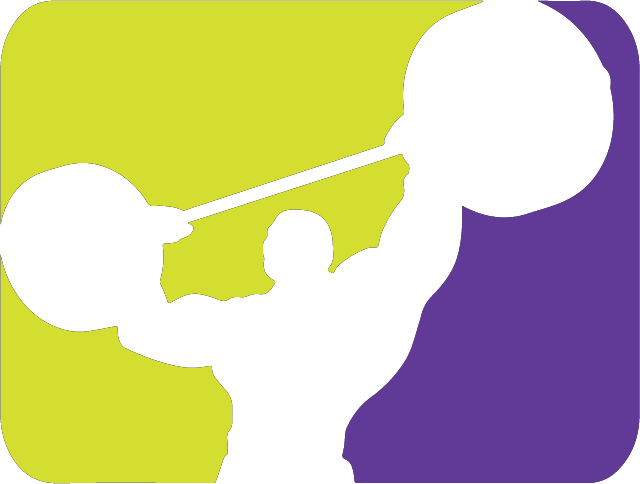
Do you know why we scale a workout?
If you answered "because we aren't strong enough to lift the Rx weight," keep reading. That's just the tip of the iceberg.
We refer to the goal of a workout as the stimulus. Stimulus = the intended effect. Every workout has one; that's part of the reason why CrossFit is so effective. You've all had the privilege of enjoying the careful and loving programming by our Director of Death. Each workout, sadistic as it may seem when you're halfway through, was designed by Tyler (or Coach Eche) ahead of time to achieve a specific goal (which plays into the larger goal of making you fitter).
You can get a feel for the stimulus for a workout by asking questions like: is the time domain long or short? What are the movements we are doing? Is the weight heavy or light? Are the reps large or small? Are the movements complex or simple? Etc. The stimulus may be "barbell cycling" or "aerobic capacity" or "strength building" or even "mental fortitude."
Note that the stimulus is never "go Rx" or " beat my friend" or even "beat my previous time on this workout." Those things may happen, but they are not the point. The point is to become fitter.
Scaling is a tool we can effectively use to do that. But how can scaling (doing LESS reps or LESS weight or LESS range of motion) make you stronger?
Because the highly-effective CrossFit methodology tells us that we should progress in the following order:
This means that when your mechanics suck, but you load up the bar anyway and then ball out in the WOD, you just ignored the stimulus of the workout. You practiced shitty form. If you keep approaching the workouts this way, your progress in CrossFit will be slow at best.
"Did you bring your cape to class today? No. Don't be a hero. It's only hurting your progress."- Tyler Cox
But if you focus on the stimulus of the workout, scale back the weight appropriately, and focus on making every rep as close to perfect as possible, you will become a much more efficient mover. This means you'll be able to increase the weight on the bar AND you'll be able to it move faster. More weight on the bar will make you stronger. Faster speed through the workout will make you aerobically fitter. And bam! You just used scaling to make yourself better.
We encourage everyone to think about this before and after every workout. If you went too heavy on a workout and didn't finish under the time cap, LEARN from that. If you went too light and finished minutes ahead of everyone else, learn from that too! And make sure you ask your coach questions. We are here to help.
If you answered "because we aren't strong enough to lift the Rx weight," keep reading. That's just the tip of the iceberg.
We refer to the goal of a workout as the stimulus. Stimulus = the intended effect. Every workout has one; that's part of the reason why CrossFit is so effective. You've all had the privilege of enjoying the careful and loving programming by our Director of Death. Each workout, sadistic as it may seem when you're halfway through, was designed by Tyler (or Coach Eche) ahead of time to achieve a specific goal (which plays into the larger goal of making you fitter).
You can get a feel for the stimulus for a workout by asking questions like: is the time domain long or short? What are the movements we are doing? Is the weight heavy or light? Are the reps large or small? Are the movements complex or simple? Etc. The stimulus may be "barbell cycling" or "aerobic capacity" or "strength building" or even "mental fortitude."
Note that the stimulus is never "go Rx" or " beat my friend" or even "beat my previous time on this workout." Those things may happen, but they are not the point. The point is to become fitter.
Scaling is a tool we can effectively use to do that. But how can scaling (doing LESS reps or LESS weight or LESS range of motion) make you stronger?
Because the highly-effective CrossFit methodology tells us that we should progress in the following order:
- Mechanics (good technique)
- Consistency (good technique in every rep of every workout, multiple times a week)
Then... and ONLY then..... - Intensity (Going fast or heavy with your good technique.)
This means that when your mechanics suck, but you load up the bar anyway and then ball out in the WOD, you just ignored the stimulus of the workout. You practiced shitty form. If you keep approaching the workouts this way, your progress in CrossFit will be slow at best.
"Did you bring your cape to class today? No. Don't be a hero. It's only hurting your progress."- Tyler Cox
But if you focus on the stimulus of the workout, scale back the weight appropriately, and focus on making every rep as close to perfect as possible, you will become a much more efficient mover. This means you'll be able to increase the weight on the bar AND you'll be able to it move faster. More weight on the bar will make you stronger. Faster speed through the workout will make you aerobically fitter. And bam! You just used scaling to make yourself better.
We encourage everyone to think about this before and after every workout. If you went too heavy on a workout and didn't finish under the time cap, LEARN from that. If you went too light and finished minutes ahead of everyone else, learn from that too! And make sure you ask your coach questions. We are here to help.
